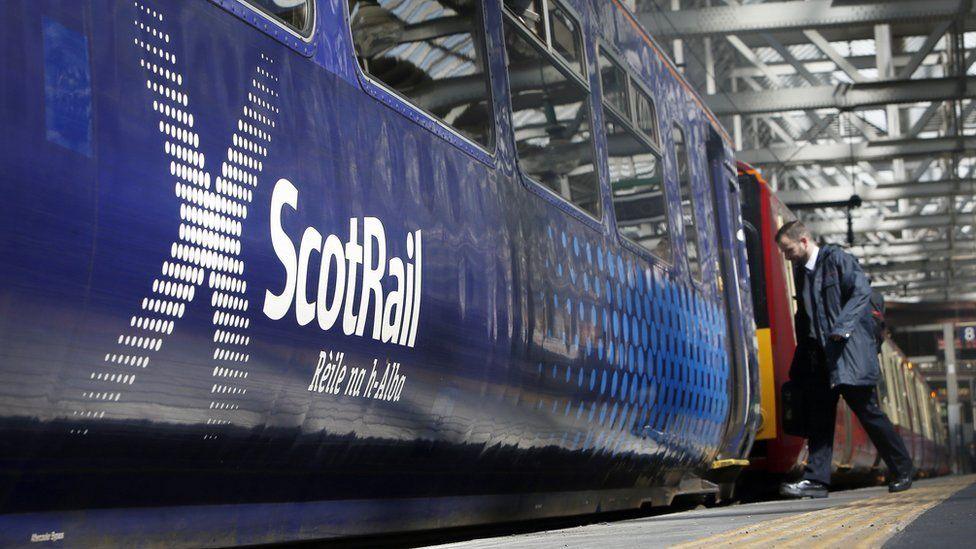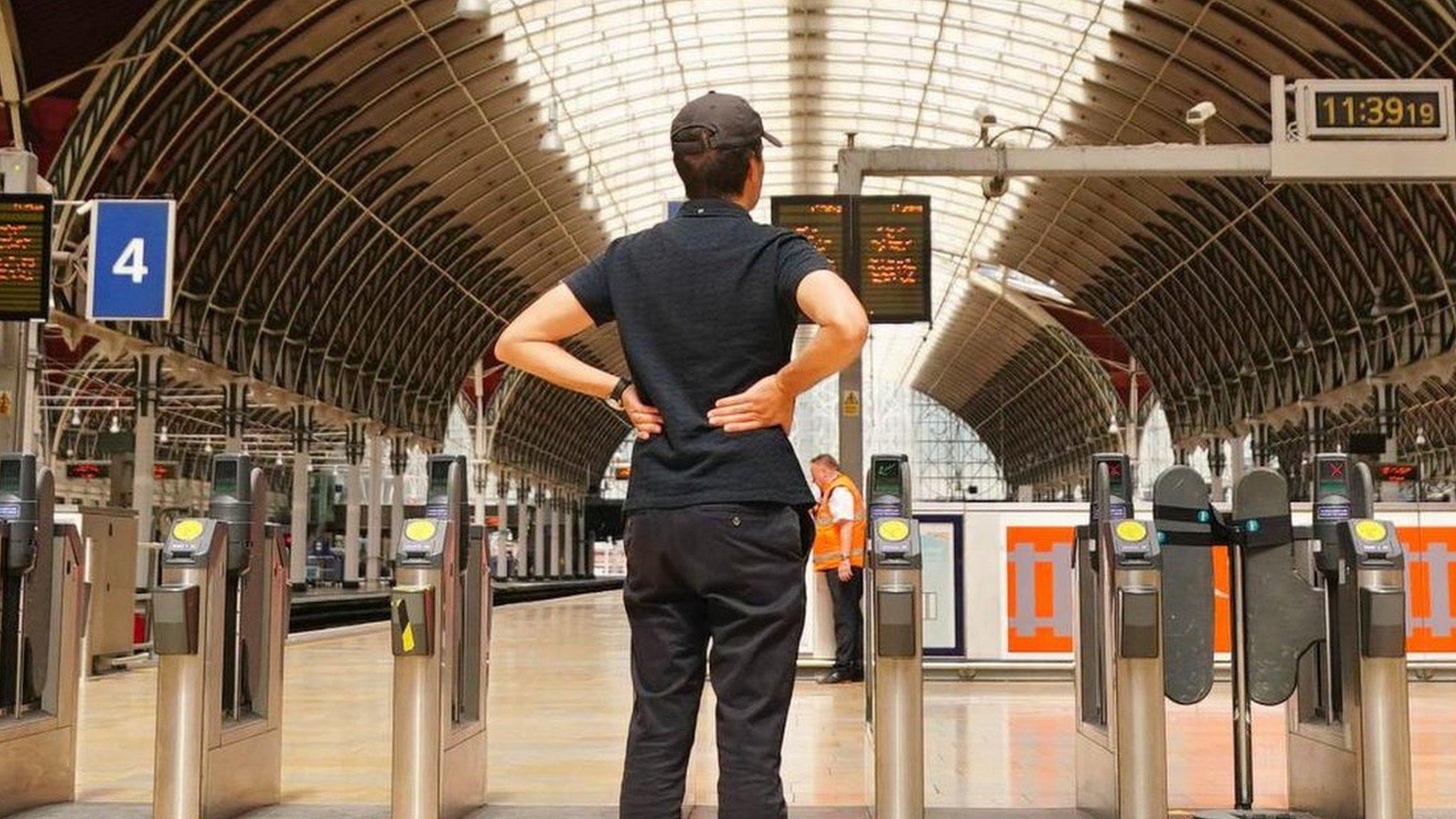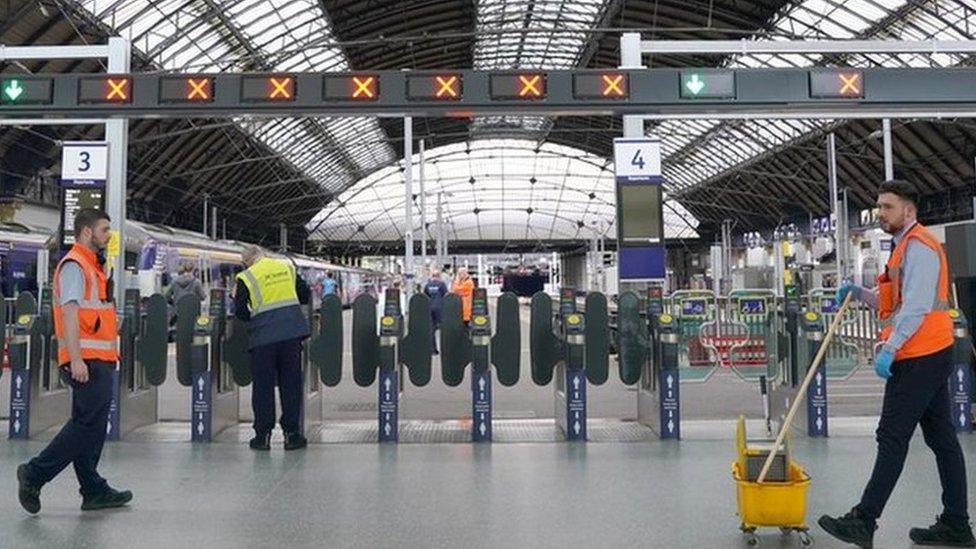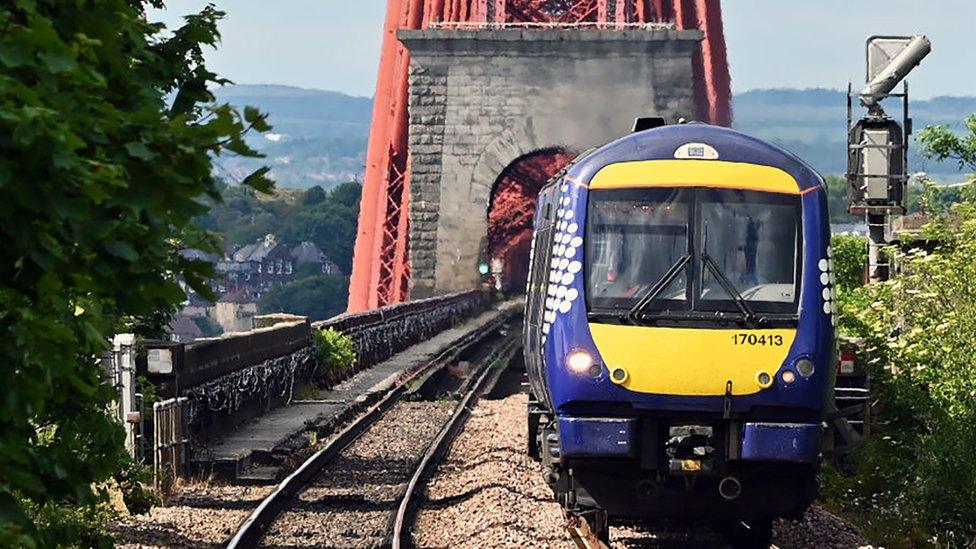ScotRail warns of major service cuts during UK-wide strikes
- Published
- comments

ScotRail is warning of significant disruption due to strike action by RMT members working for Network Rail.
More than 40,000 rail workers across the UK will stage the first of three 24-hour strikes on Wednesday.
The walkout by staff at Network Rail and 14 train operating companies is part of a continuing row over pay, jobs, and terms and conditions.
The dispute does not involve ScotRail staff, but will mean a major reduction in services.
A "very limited" number of services will operate on five ScotRail routes in the central belt, with no service on all other routes.
Wednesday's walkout is due to be followed by further strikes on Thursday 18 August and Saturday 20 August.
It follows a similar strike in June that saw rail services severely disrupted across three days.
During those walkouts, ScotRail cancelled 90% of its services while cross-border services were also badly affected.
ScotRail said the railway will only be operational between 07:30 and 18:30 on the forthcoming strike days.
The services which will run on these days are:
Edinburgh - Glasgow via Falkirk High: two trains per hour
Edinburgh - Bathgate: two trains per hour
Glasgow - Hamilton/Larkhall: two trains per hour
Glasgow - Lanark: two trains per hour
Edinburgh - Glasgow via Shotts: one train per hour
Final services will depart well before 18:30, and customers are being urged to plan ahead to ensure they know when their last train will run.
Services are also expected to be affected on the days after strike action due to the staggered reopening of signal boxes across the country.
TransPennine Express (TPE) has also called on customers to only make essential journeys on and around strike days.
TPE said it would be running a reduced service on its Edinburgh to Newcastle route.
David Simpson, ScotRail's service delivery director, said the prospect of widespread disruption was very unfortunate and frustrating for ScotRail customers.
He added: "Regrettably, this strike action by RMT members of Network Rail means that we will not be able to operate the vast majority of our services during the period of strike action. Customers should expect significant disruption to services on strike days, as well as the following day.
"On the five routes where we are able to operate a very limited service on strike days, we're advising customers to seek alternative means of transport and to only travel if they really need to."
Working practices
The dispute centres around whether workers, including guards, signallers, catering staff and cleaners, will receive pay rises to keep up with the sharply rising cost of living.
But the railway workers' union has also highlighted proposed changes to pension schemes, working practices, and what it says is insufficient general funding for the transport system.
During the pandemic many workers adapted to working from home for at least part of their working week, reducing demand for rail services. The rail industry says working practices need to be updated to save money in the light of these new habits.
Tim Shoveller, Network Rail's lead negotiator, said the RMT had walked away from "ongoing and constructive talks".
The government has urged the union to end the industrial action.
Related topics
- Published25 July 2022

- Published21 June 2022

- Published9 May 2024

- Published18 June 2022
